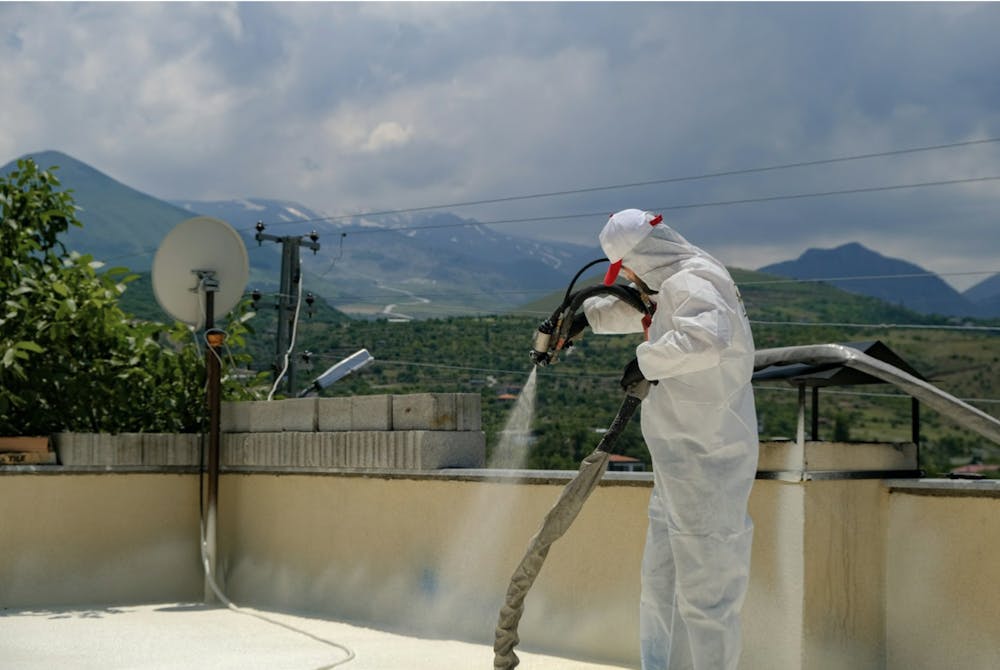Spray foam insulation іs an energy-saving tool that can significantly lower utility bills while offering a multitude оf benefits. Properly applied using foam guns, іt can significantly improve your home's comfort and efficiency. From lowering heating and cooling expenses tо reducing moisture retention rates and dampening noise levels, spray foam insulation delivers a powerful one-two punch for your budget and comfort.
However, with different spray foam types and R-Values available, the selection process can feel overwhelming. Tо help navigate this decision, VB Insulation offers this comprehensive guide tо understanding spray foam and selecting the right type for your home.
1. Closed-Cell vs. Open-Cell
The main distinction between open and closed-cell spray foams lies in their resistance to water and moisture absorption; closed-cell foam is water and vapor resistant while open-cell can absorb both without being coated with an anti-moisture vapor barrier coating.
This distinction is vital, as moisture tends to migrate outward during cold winters and inward during warm summers, potentially leading to structural damage, rot, mold growth and other costly problems in structures.
Open-cell and closed-cell foam differ significantly in their cellular structures as well. Closed-cell spray foam features dense cells reminiscent of sponge, while open-cell spray foam features looser cells resembling that found in cellulose fiberglass batt insulation, creating space for air circulation while creating an effective vapor barrier and offering structural support. Furthermore, open-cell spray foam may even repel water rather than absorb it as with traditional insulation options.
2. Insulation Level
R-Values are one of the primary indicators of spray foam insulation quality and should be considered when making decisions for home insulation projects. They describe how effectively heat is blocked from passing through, which plays an essential role in keeping homes comfortable and energy efficient.
R-Value measures how effective insulation material is at keeping your home warm while saving on energy bills, yet there are other factors that must be considered beyond R-Value; professionals are the ideal source for determining your specific home needs.
An equally crucial consideration when selecting spray foam insulation is how much noise it can absorb. Closed-cell spray foam has an STC rating that effectively muffles external and internal noise sources, such as traffic. Finally, accurately calculating spray foam coverage requires measuring an area and calculating thickness requirements to avoid over or under-insulation which could waste money and create wasteful costs; our insulation experts at VB Insulation offer formulas to assist in this regard.
3. Budget
Spray foam insulation creates an airtight seal to keep air leakage at bay and keep your home comfortable all year round. Furthermore, it acts as an effective noise blocker between rooms or from outside noise transmission, creating a peaceful atmosphere that your family can enjoy together.
Spray foam insulation costs can depend on its type and R-value. But its long-term savings could make the initial investment worthwhile for homeowners; there may also be rebates and tax credits available that help offset installation expenses.
Professional spray foam insulation contractors such as VB Insulation can assist you with choosing the ideal product and project for you home and project, and provide more information about its comfort-enhancing and savings benefits. It is ideal for new construction as well as retrofit applications; so contact VB Insulation today and start saving big!
4. Application Area
Spray foam provides a superior vapor and moisture barrier, helping prevent the growth of mold, mildew, and other uninvited guests that create conditions ripe for health hazards, unpleasant odors, structural damage and more.
Closed-cell spray foam insulation materials also assist in reducing sound transfer between areas in your home. Acting as sound dampening material, closed cell spray foam insulation offers superior noise reduction over other insulation options. Spray foam insulation can be easily utilized in areas that are easily accessible without the need for demolition such as attics, basements and crawl spaces. Customers should understand that when it comes to working with spray foam, professionals need to follow certain work and safety practices and provide proper ventilation. Therefore, customers should remain away during application and for some time afterwards in order to reduce exposure to its chemicals, particularly those who might be concerned about potential odors or respiratory irritation.
This post is provided by a third party who may receive compensation from the products or services they mention.


